It’s the first lacrosse game of 23-year-old Tom Rubel’s freshman year. The national anthem is booming over the loudspeaker as Rubel stands shoulder to shoulder with teammates on their home field at Harvard Stadium, eyes fixed on the American flag ahead. But Rubel isn’t thinking about the opponent or his team or even the game itself. He’s thinking about how on his 21st birthday he was aboard a helicopter being flown out of Ramadi, Iraq, one of the most intense battlegrounds of the war. He’s thinking of the guys in his platoon he’d formed lifelong friendships with, the work they’d accomplished in Iraq, and the guys who didn’t make it home. He’s thinking, “How did I get here?”
By the time he started as freshman at Harvard, Rubel had already enlisted in the Marines at 17, deployed twice to Iraq, and played in an Australian rugby league. He had even worked in a coal yard in New South Wales where he was the first American some of the men he worked alongside had ever met. So how did Rubel get to Harvard Stadium?
 During his Junior year of high school, Rubel had taken a handful of official athletic visits to Division I programs, Harvard included. Instead of pursuing college athletics, though, Rubel did something else. Just before the start of his senior year in 2003, the year he earned MVP honors as a lacrosse defenseman, Rubel enlisted in the United States Marine Corps.
During his Junior year of high school, Rubel had taken a handful of official athletic visits to Division I programs, Harvard included. Instead of pursuing college athletics, though, Rubel did something else. Just before the start of his senior year in 2003, the year he earned MVP honors as a lacrosse defenseman, Rubel enlisted in the United States Marine Corps.
“A lot of people try to scare you, tell you you’ll never be good at anything else. One guy told me I wouldn’t make it through college, that I’d end up back in the military.”
His first deployment was to Fallujah, Iraq at 18 years old. Seven months and a learning experience later, Rubel returned to the states and tried out for a sniper platoon. He excelled in try outs, earning a coveted spot on the sniper platoon, and went on to graduate from Marine scout sniper school. His unit then deployed to Ramadi, Iraq where they replaced a sniper platoon that had taken many casualties during heavy fighting. Rubel’s team and platoon were similarly involved in frequent engagements, as Ramadi was the most dangerous city in Iraq while he was there. However, by the end of Rubel’s 9-month tour, the city started to see improvements.
With a year left on his military contract, Rubel and his unit returned to the states and were told they would not be redeploying to a combat zone, but rather embarking on a Military Expedition Unit (MEU) where they would travel the world aboard Navy ships as a ready force for potential conflicts in new areas. Instead of extending his enlistment to join his team for a non-combat deployment, Rubel stayed behind to accept a sniper school instructor position, a rare offer to a 21-year-old. Two weeks before his team was scheduled to board the ship, they were deployed directly to Afghanistan instead. Unfortunately, there was not enough time for Rubel to transfer back into his old unit. On their deployment, many men from Rubel’s unit were injured. His best friend, Justin Cooper, was killed in action while rescuing a pinned down infantry platoon. Rubel was devastated. He wrestled with the guilt of leaving his platoon and struggled with the pain of losing the guys he’d fought with in Iraq.
Close to a year of instructing at sniper school had passed, and Rubel was still torn up about the loss of Cooper. He was also having a hard time deciding what to do now that his military contract was almost up. He mulled over his options. Transitioning out of the military and into civilian life would be challenging, and Rubel had plenty of offers for positions within the military. On the other hand, he also knew he wanted to go back to school. So he had to make a decision: stay or go?
“They immediately gave me a team to be a part of, and the leadership, toughness and discipline from the military carried over to playing sports,” he says.
Rubel was met with opinions from friends and colleagues, a number of them unsupportive of his considering leaving the military. “A lot of people try to scare you, tell you you’ll never be good at anything else,” he says, “One guy told me I wouldn’t make it through college, that I’d end up back in the military.”
Rubel chose to shut out the negative comments from those who didn’t believe in him and apply to college. He knew he still had a little gas left in the tank to play college sports, so he spoke to some college coaches about walking on to a lacrosse team. Then, he waited to hear back from admissions offices.

In the meantime, Rubel bought a one-way ticket to Australia where he would spend time working in a coal yard and playing rugby for a team outside Newcastle, New South Wales. While in Australia, he found out he had been admitted to Harvard. He picked up a lacrosse stick in June 2009 for the first time since high school after he learned he had also been offered a spot on the Harvard lacrosse team.
The first day of school, Rubel dropped his bags in his freshman dorm where he’d been roomed with three 18-year-olds he’d never met or talked to. He wasn’t fazed. That same day the team had their first team meeting. The guys, especially his fellow freshmen, gave him a familiar sense of belonging. “They immediately gave me a team to be a part of, and the leadership, toughness and discipline from the military carried over to playing sports,” he says.
Rubel recognized the maturity differences between himself and his younger teammates, but he wasn’t bothered by it. He saw it as an opportunity to play big brother and use the leadership skills he had developed in the Marines. Despite his successful transition, Rubel was hit with a blow at the end of his first semester: He needed back surgery. At 23, he was training hard to compete at the Division I level, and his body was taking a beating. He refused to be discouraged, and just two weeks after surgery he was working out and doing physical therapy. He spent winter break living on campus and rehabbing with the athletic staff. Two months later, Rubel was back on the field showing his teammates the dedication and toughness he fostered in the Marines.
“My biggest contribution was what I brought to the team on and off the field,” he says, “I wasn’t just a player but also an older brother figure for some,” he says.
Bordering the line between player and mentor was something Rubel did well. His military experience allowed him to give advice when his teammates were down.
“Sometimes you’d have guys talking about pulling an all-nighter or practicing in the rain,” he says, “In the Marines, we’d be on training missions for 5 days straight, cold, miserable, and going without sleep, so I was able to give advice to the younger guys. I’d say ‘yeah it may be cold and wet at practice but it’ll be over soon. Then we’ll be in the dining hall at Harvard University.’ On and off the field I just tried to give them different perspectives.”
“The comradery and sense of purpose that a team gives you helps deal with the feelings of restlessness that develop over four years [of college] in a sheltered environment.”
Overall, Rubel’s relationship with his teammates was one of mutual respect and genuine comradery. “Going to Harvard as a 23-year-old freshman, I had certain perceptions about what it would be like,” he admits, “Harvard, especially the lacrosse team, really outperformed my expectations. They were amazing guys and valued the intangibles and experience that I brought to the team.”
One of the biggest challenges Rubel faced was the college bubble he couldn’t escape, where things were only talked about in theory. He wanted to be doing things like he did in the Marines, not talking about doing things. “The military gives you the highest of highs and lowest of lows. Everything you do for the rest of your life is going to fall somewhere in between that,” he says, “The comradery and sense of purpose that a team gives you helps deal with the feelings of restlessness that develop over four years [of college] in a sheltered environment.”

During his Junior year, Rubel found out he needed surgery on both knees. Instead of beating himself up over the news, he used it as motivation to try new things. He took the summer off to work construction in New York and started volunteering with Team Rubicon, a veteran-based organization that aids in disaster relief. Ultimately, Rubel chose not to play lacrosse his Senior year, and spent it commuting from his construction job on the World Trade Center project to Cambridge so he could finish his degree. Lacrosse had served its purpose, and Rubel was on to a new mission.
Rubel graduated from Harvard in 2013, and is potentially the first undergraduate veteran to do so since the Vietnam-era veterans. He now lives in Hawaii with his fiancée and works in construction after completing a two-year contract with Teach for America where he taught 8th Grade Math and Science.
Needing an athletic outlet on top of surfing and kite surfing, Rubel picked up outrigger canoeing, competing on a local team in long distance, open-water ocean races. He knows that athletics have been, and will continue to be, a big part of his life. “I got involved with outrigger canoeing because I missed that comradery and adrenaline that the military and athletics give you,” he says, “Going back to school really changed my life, but I don’t know if I could’ve done it without sports.”















